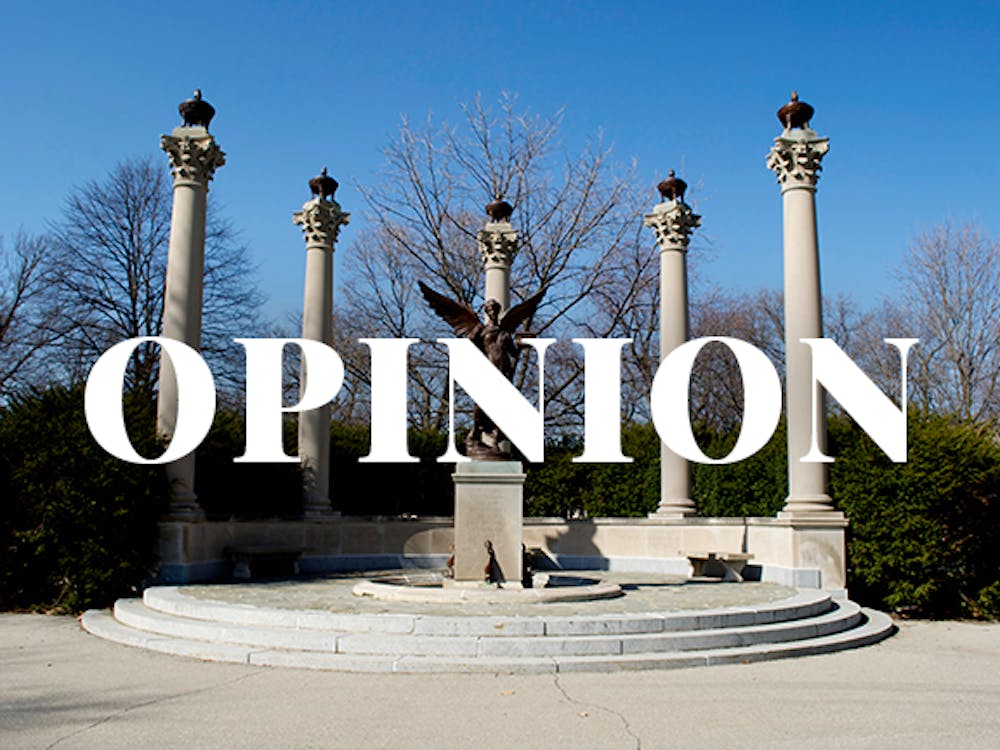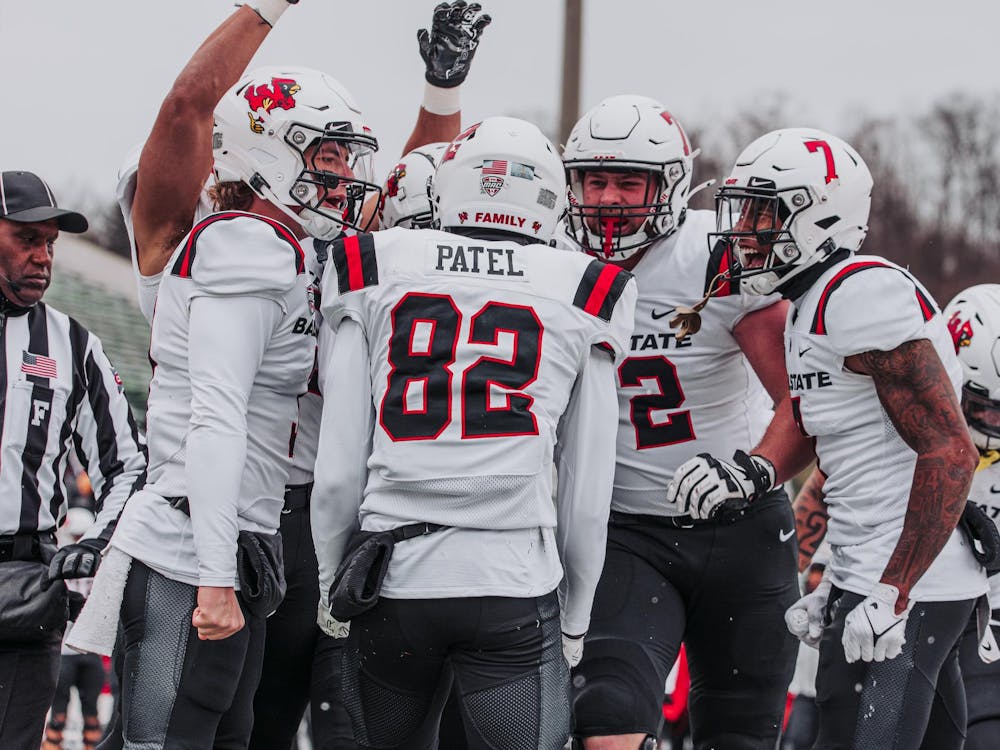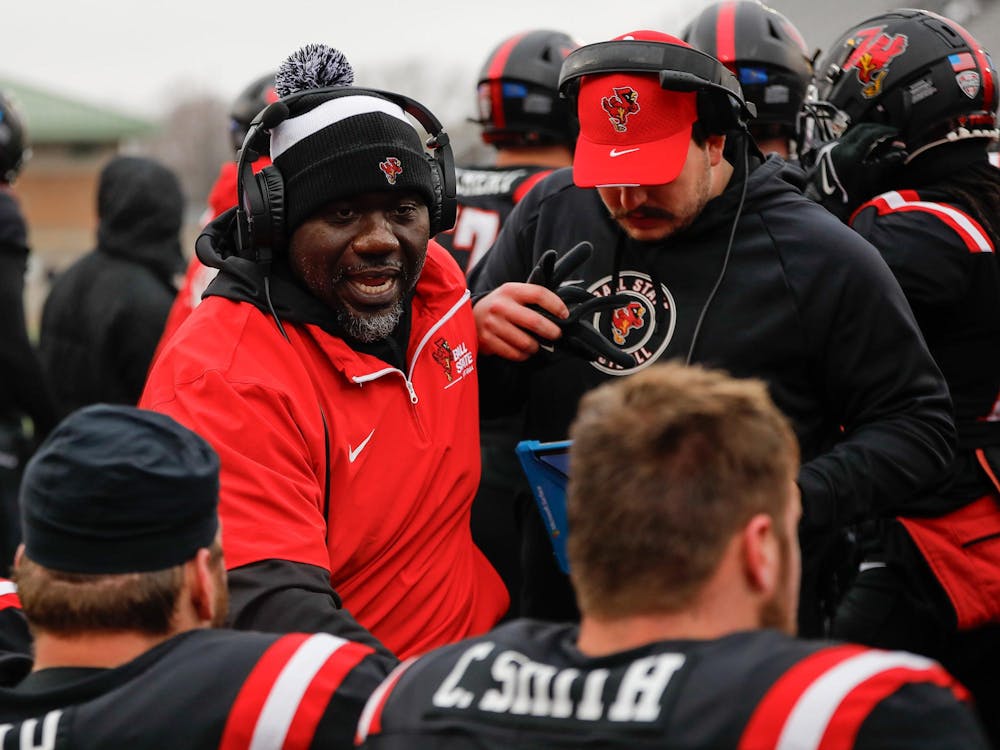Elena Stidham is a sophomore journalism major and writes “Loud and Clear” for the Daily News. Her views do not necessarily agree with those of the paper. Write to Elena at emfloyd2@bsu.edu.
I can’t fall in love.
I can feel love — with my family and my friends and passions that are important to me in my life — but as far as falling in love, romantic love, I can’t do it. It’s impossible for me, and the reason is very simple.
No, I’m not a sociopath, like a girl in my high school said I was. No, I don’t have commitment issues, or at least I think I don’t. I’m what’s called an aromantic, which is defined as someone who feels little-to-no romantic attraction. For those of you familiar with asexuals, it’s pretty much the same thing, but instead of sexual attraction, it’s romance.
Now, if you were to ask me why I became aromantic, I couldn’t give you an answer. I tried searching for that answer for years now. I thought maybe it was because I was a child of divorce, until I saw other people my age that feel romantic attraction that were in the same boat as I. My friend’s ex thought it was because I had been through two bad breakups, but the thing was, I didn’t even feel romantic attraction while I was in those relationships. I felt like I was being forced to put on a show for both of them because that’s just what I had to do to show I truly cared about them. The thing is, I’ve been aromantic for as long as I can remember, but I didn’t discover that there was a word for people like me until relatively recently.
I know this is a very difficult subject for a lot of people to try and understand. Nobody is more obsessed with romance than society itself. Just look at movies, books, music or any other form of pop culture. How much of it has an unnecessary romantic subplot? How much of it is straight up romance? Let’s not forget about the mother of all commercialized love stories.
I struggle during this time of the year. I see people celebrating love and each other. It’s hardest around Valentine’s Day.
Aromantic, like all labels on the LGBT+ community, is a spectrum, and there are no two aromantics that are exactly alike, just like there are no two gays that are exactly alike in their preferences. I fall on the spectrum of romance repulsed, except in certain exceptions.
I feel sickness in my stomach every time something romantic shows up on my social media. However, that’s my own personal experiences, and I’m on a rather extreme end of the spectrum.
For some people, like junior psychology major Gabby Sellers, Valentine’s Day doesn’t affect them. In fact, Sellers actually loves the Valentine’s Day season.
“On the day, I usually blast One Direction and watch cheesy, romantic comedies,” Sellers said. “Just because I don't feel romantic attraction sometimes people think that I'm anti-love or anti-romance ... I focus on the love I have for my family and friends, because no one says that Valentine's Day is an only a romantic holiday.”
In the case of sophomore theatre and TCOMM major Rachel Replogle, Valentine’s Day is a conflicting reminder, for better or for worse.
“Valentine’s Day is kind of a reminder each year that I’m different, so there is an isolating element to it, but I also find freedom in my orientation,” Replogle said. “I’m not going to lie though, there is a small wave of sadness that comes each year with this ‘holiday.’ Especially because I’m a female, there is a pressure to be romantically involved, or emotional, or ‘lovey dovey.’ Knowing that for still a long time to come, my ability to function as a wife/mother is what will define my success is deeply saddening.”
There isn’t one set type of aromantic, just like how there isn’t one set type of any other identity. However, we do face one thing that everybody else with some kind of LGBT+ identity faces: discrimination.
The thing is, society has been pumping romance into our bloodstreams since we were old enough to understand the TV shows our parents raised us on. Disney is one of the worst offenders, and you won’t believe how ecstatic I was when they revealed Moana wasn’t going to have a love interest.
But because of this, the discrimination we face isn’t really bullying like how it is for many others. It has been complete erasure. The absolute worst phrase I continuously hear is “oh, well you just haven’t found the right guy yet.”
And apparently, I wasn’t the only one to hear this phrase either.
Sophomore TCOMM major Emily Muse often heard the words “it’s just a phase” when they told people about their aromanticism, something I have also heard too often, to admit.
“I haven't had a crush on anyone in my 20 years. If my orientation is ‘just a phase.’ then step up your game until I find you attractive,” Muse said.
Sellers had similar reactions as well, even adding to the fact that pity was thrown in her responses.
“ For people who don't understand or just think it's a phase, this is how I'm most happy as. I'm not happy in a relationship and I don't want to get married,” Sellers said. “I just love people differently. It's not a phase, it's just who I am. I'm happier just being me and knowing what is best for me, rather than having to try to force myself to be something I'm not because society thinks differently than me.”
It’s annoying. Being told left and right that my identity isn’t real and that we’ll grow out of it because they don’t want to believe that this is who I am is one of the most painful things to try and sit through. I get it. You mean well, and you’re trying to be comforting saying that I’ll find that someone, but what if I don’t want that someone?
I am perfectly content with not falling in love with anyone. In fact, I have plans to live with my best friend in Seattle after she and I graduate. I have no desire to find a husband and settle down. I don’t care whether or not I die without ever getting married. Don’t belittle me. I can make it just fine on my own.





